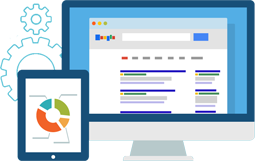
When Should You Delete Pages from Your Website?
Deleting pages from a website should not be done willy-nilly, as it can significantly affect your Los Angeles search engine optimization (SEO) strategy and user experience. While there are no set rules for the frequency of deleting pages from a website, certain situations may be necessary. Below, we will highlight when deleting pages is good or bad.
1. Your Website is Outdated and Thus Needs an Update
Deleting pages may be necessary if the content is outdated or irrelevant. For example, if a website has a blog post from five years ago that is no longer accurate or relevant, it may be a good idea to delete it. However, it’s essential to consider whether the page has any value from an SEO Los Angeles perspective. If the page has backlinks or ranks well in search engines, it may be better to update the SEO content rather than delete it entirely.
2. Your Pages Have Duplicate Content and Thus Need to Be Deleted
Another situation where deleting pages may be necessary is if the page is causing duplicate content issues. Duplicate content can negatively impact SEO because search engines may view it as low-quality or spam-like. It looks like you’ve run out of things to talk about and are just recycling your content!
If a website has multiple pages with similar or identical content, it may be a good idea to delete some pages to avoid duplicate content issues. It makes your website look cleaner too.
3. Your Pages Have High Traffic, Meaning You Shouldn’t Delete So Easily
It’s also essential to consider user experience when deciding whether to delete pages from a website. If a page is frequently visited or provides value to users, deleting it may cause frustration or confusion. If you must delete the frequently visited page, you should use a redirect so that users can land on the new webpage with no problems. Alternatively, you can update the content to keep it accurate.
Please Remember
It’s worth noting that even if a page is deleted, it may still appear in search engine results or be linked to other websites. To avoid 404 errors and maintain a positive user experience, you must redirect the deleted page to a relevant page using a 301 redirect. This will ensure that users and search engines are directed to a page with similar content rather than encountering an error page that can turn them off from your website altogether. However, please do not enter a cycle of deleting pages and then redirecting, as too many redirects can lower your page loading speed and negatively affect your SEO.
Conclusion
In conclusion, deleting pages from a website should be done thoughtfully and strategically. It’s important to consider whether the page is outdated, causing duplicate content issues, or no longer provides value to users. Suppose a page does need to be deleted. In that case, it’s essential to redirect it to a relevant page using a 301 redirect to maintain a positive user experience and avoid negative SEO impacts. It’s necessary to regularly review website content to ensure it remains relevant and helpful to users.
Do you have any other pressing questions about SEO? Are you wondering if your website is as great as it can be to be primed for the search engines? Drive Traffic Media would be more than happy to answer your questions. We are an SEO company in Los Angeles that can help boost your online visibility. We can be reached at (949) 800-6990 or (310) 341-3939.


